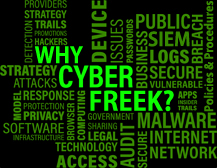It's been well known that Telegram has been a preferred platform for cybercriminals. In many ways, it has emerged as an alternative to Dark Web Marketplaces.  Since the take down of Dark Web marketplaces like AlphaBay and Hansa in 2017. Telegram served as a haven with its encryption and strong user privacy, for those wary of more mainstream social platforms.
Since the take down of Dark Web marketplaces like AlphaBay and Hansa in 2017. Telegram served as a haven with its encryption and strong user privacy, for those wary of more mainstream social platforms.
As a result of Durov's arrest, Telegram announced on September 23, 2024 that it will now provide IP addresses and phone numbers with valid warrants to law enforcement.
This policy shift can jeopardize the platform's appeal as it has 900 million users globally and is predicted to reach 1 billion by 2024. Furthermore, the platform has begun removing problematic content from its public search features with stricter content moderation supported by AI tools. There are now concerns across underground communities, who see this as a signal that Telegram is no longer a safe haven.
Telegram’s new policies are pushing those to seek alternative platforms. Potential replacements like Discord, Signal, and Matrix are being looked at as a possible successor to Telegram. In addition to encryption, community features, and content moderation, these other platforms do not offer the exact combination of functionalities that make Telegram such a popular hub for illicit activity.
There are various discussions within these underground networks, that “Telegram is not safe” has spiked, launching further uncertainty.
Durov’s arrest and Telegram’s policy changes reflect a broader challenge facing many technology platforms today: balancing privacy with the responsibility to combat illegal activity.
One thing is certain—privacy and platform responsibility will remain key themes in this evolving story.
Cheers!
Cyberfreek

